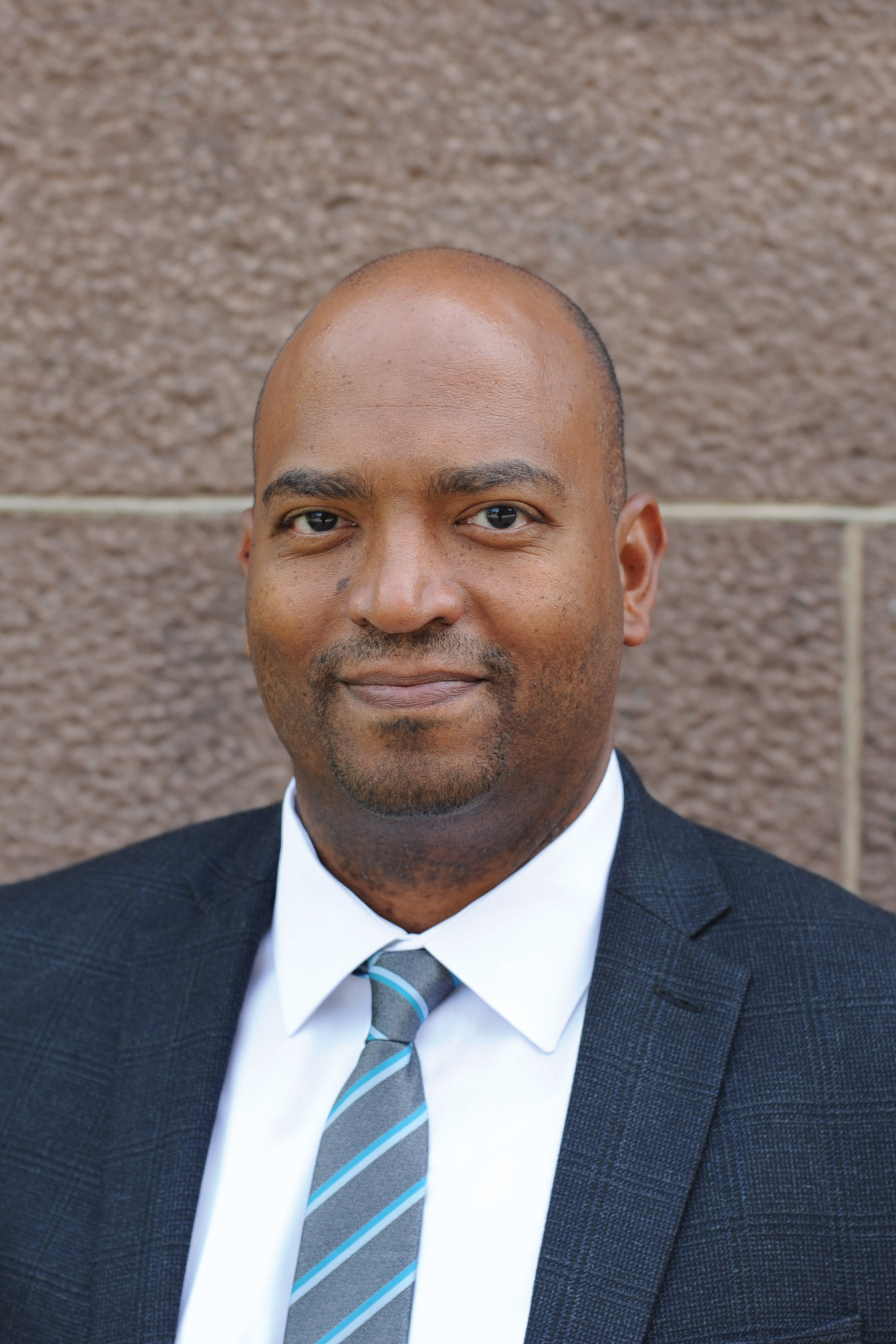BIG CHALLENGES FOR NON PROFITS
Students in the class Nonprofits and Social Change heard from nonprofit executives about the challenges of scaling up to meet pressing social needs.
WHEN A COUPLE OF GUYS brandishing baseball bats showed up in the lobby of the Bowery Residents’ Committee (BRC) in 2001, demanding payment for an overdue bill, Muzzy Rosenblatt ’87 had a minor epiphany: Without a solid financial base for BRC, his vision as the nonprofit’s new executive director would mean little.
In short order Rosenblatt became data driven and was surprised by what he discovered. While his staff had plenty of heartwarming anecdotal stories about success in ameliorating homelessness—BRC’s mission— none could provide hard evidence regarding which programs were working and why. Before long, Rosenblatt shut down one popular program that was losing $300,000 a year and learned to do what needed to be done to ensure the organization’s long-term growth and stability.
Under Rosenblatt’s direction, BRC pioneered a new method of building affordable housing for very low-income or homeless individuals: co-developing homeless shelters and housing in one location, with government income from the shelter invested in the housing component. Today, 16 years after that fateful encounter in the lobby, BRC is a much stronger and more effective organization, with a $75-million annual budget and a staff of 800 who served more than 11,000 people last year.
“Data drove us to innovate,” says Rosenblatt, who shared his story with students enrolled in Wesleyan’s Nonprofits and Social Change course this past fall.
The course is the creation of Jeffrey Shames ’77, executive in residence at MIT’s Sloan School of Management, and Rob Rosenthal, Wesleyan’s John E. Andrus Professor of Sociology and director of the Allbritton Center for the Study of Public Life. Nonprofits and Social Change is designed to explore the ways in which nonprofits help (or don’t help) the process of social change.
Shames, who led class discussions, is the retired chairman and CEO of MFS Investment Management, a Boston-based global investment management firm. He brought not only his business perspective to the course and its students, but also decades of experience with nonprofits, beginning with his service in the Peace Corps after graduation and currently as a board member of seven nonprofit organizations.
Nonprofits increasingly are being called upon to perform tasks once assumed by governments, Shames says. As a result, the field is wide open for budding social entrepreneurs. “I want students to explore opportunities, to be inspired, and to get creative,” he says. “In the nonprofit world, you get lots of responsibility very early in your career.”
But it takes more than just a good idea to achieve success. Nonprofits have a host of traditional business challenges related to growth, quality control, branding, human capital, board management—even warehousing and supply chain control, in some cases. To explore those complexities and engage students on the front lines of nonprofit work, Shames invited several nonprofit executives to talk to the class about the challenges they have faced.
Nothing is more difficult than scaling up: taking a small and successful organization and applying its model to a larger stage. Year Up, for example, started in the Boston area in 1999 as a promising idea: give low-income young adults an opportunity to achieve their full potential through a year of intensive training in technical skills, set rigorous expectations, and provide a six-month internship with a corporate partner. The initial challenge, says Tim Dibble ’86, chair of the board of Year Up, was that at its inception, the organization had no curriculum, no teachers, and no clear means of finding appropriate students.
While the fledgling nonprofit worked with guidance counselors to identify its first class of 22 students, Dibble knew Year Up needed to open operations in locations such as New York and Washington, D.C., in order to have a larger impact. The hardest part, he says, was finding the right people to run a growing number of locations.
Today, Dibble credits the hiring of outstanding managers with fueling the organization’s rapid growth. Year Up is now a $130-million per annum program whose 3,800 graduates this year alone will help fill a substantial unmet need for skilled corporate employees. At Boston’s State Street Bank, some 500 full-time employees are graduates of Year Up, providing the bank with a motivated, diverse, talented, and loyal workforce.
“Year Up,” says Shames, “has figured out scaling up better than just about any other nonprofit.”
Rhea Drozdenko ’18 took the lesson about scaling up to heart. She is deputy director of Dream Chasers, an Atlanta-based nonprofit started three years ago to help students realize their academic dreams. “As someone who came from a working-class family and attended community college, I understand the power of mentorship and strong community,” she says. Dream Chasers is building an afterschool program that focuses on mentorship and leadership. “The course really informed me about the importance of scalability and being evidence-driven. It has inspired me to bake metrics into our curriculum so we have a model that can grow in the future.”
In 1999, the same year that Year Up was founded, Emily Edwards ’99 took her Wesleyan diploma and headed to Boston to join Summer Search—a national youth development and college success organization that focuses on building long-term relationships with students with leadership potential that begin in high school and last through college. One of the attractions: “This was a program that changed everyone it touched, and I wanted in,” she says. Edwards has defied the average two-year tenure of a nonprofit leader by staying at and growing with Summer Search for more than 17 years.
Early on, Edwards faced a significant challenge often encountered by nonprofit leaders: growing the organization and its board. A venture philanthropist offered $1 million to triple the Boston program size over three years. The board worried that this pace of growth might not be sustainable for a young organization. In response, Edwards delayed the board’s vote, and helped assuage their concerns by continuing the conversation to identify markers of success over the three years that the board could support, and then expanded board membership with more entrepreneurial leaders to help envision and facilitate the next phase of growth.
Today Edwards is the national head of fundraising for Summer Search, which has a $20-million budget and serves 3,500 students in five geographic regions. Under her leadership, the organization has evolved from a fundraising model that depended almost exclusively on fundraising events bringing new one-time donors, towards building more stable, multi-year relationships with donors whose major commitments align with the multi-year investments Summer Search makes in its students.
Jessica ’09 and Kennedy ’12 Odede are two of Wesleyan’s best known social entrepreneurs. Founders of Shining Hope for Communities (SHOFCO) in the vast Kibera slum of Kenya, the two shot to nonprofit stardom with national awards, funders such as Newman’s Own, and high-profile associations with the Clinton Foundation and others. From its beginnings as a provider of free schooling for girls, SHOFCO has grown to provide comprehensive health services and innovative solutions for water and sanitation to 130,000 people in areas that desperately need such assistance. SHOFCO’s goal is to provide not just services, but also community empowerment.
How do you scale up an organization that has relied heavily on a charismatic leader who is deeply embedded in the culture he serves—namely, Kennedy? In the class, Jessica acknowledged that just as there are aspects of Kenyan culture that she, as an outsider, will never understand, the SHOFCO team realized that importing leaders would never work. The only way to expand is to, in effect, create more Kennedys by allowing Kenyans from other distressed communities to embed themselves in the organization and learn how to create change. The Odedes’ work is a reminder that social entrepreneurs often face cultural challenges, in addition to business problems, as they attempt to scale up.



